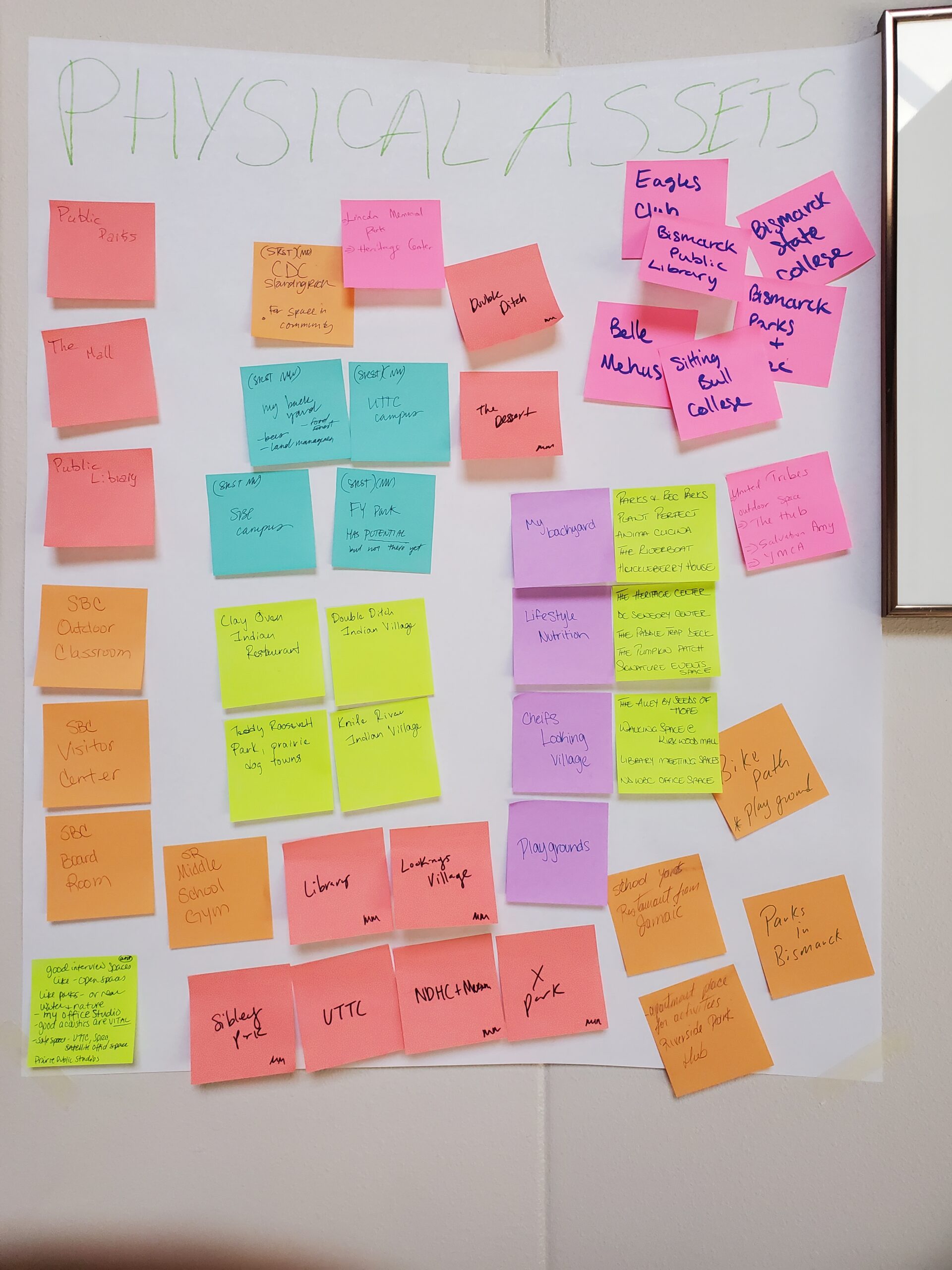Since 2020, selected community leaders, organizers, artists, and culture bearers have convened in the upper Midwest region of Minnesota, North Dakota, and South Dakota seeking to deepen their impact in creative community building. These cohorts meet in person over a six-month period from spring to fall to share knowledge, experiences and techniques that could enhance community building and organizing.
Named the Creative Community Leadership Institute (CCLI), the program supports the development of strong leaders capable of challenging and disrupting oppressive systems in their communities. Through CCLI, members discuss approaching their work with a critical lens, recognizing systems of oppression and normalizing conversations about race and colonialism.
Golnesa AsheghAli of Racing Magpie (one of the organizing partners of CCLI) has been a facilitator for several years with the program. She says every session has been unique and different. “We’ve grown and developed our thinking about things tremendously. Over the last few years, the curriculum sharpened. It changed because we’ve changed. The hope is that we are sharpening and gaining better understanding and better ways to talk to each other about things.”
In addition, participants are encouraged to design and implement a mini-pilot project in their local community. In late 2023, the Bismarck cohort wrapped up their third and final session and shared their mini-projects. All projects were community based, either executed in groups or individually.
SARA ‘CEDAR NOT FROSTED WOMAN’ PARKER“I think the biggest thing I learned was how important it is to get to know other creative people in the community of different ages.”
Solidarity Circle
Gabriel Benson, a citizen of the Mandan Hidatsa Arikara (MHA) Nation, lives in Bismarck. He is an aspiring writer and activist. He says this institute seemed to be the next step in his political career. “With its focus on art as a path towards political liberation, the goals and objectives of this group (Bismarck CCLI Cohort) is something I align myself with daily.”
Benson says he felt challenged in this space, but it also reinforced his self-worth as a writer and organizer. His group created a book club called Solidarity Circle centered around revolutionary books or political theory (see photo). The books were packaged in custom-made tote bags, complete with a notebook and they invited the larger community to participate.
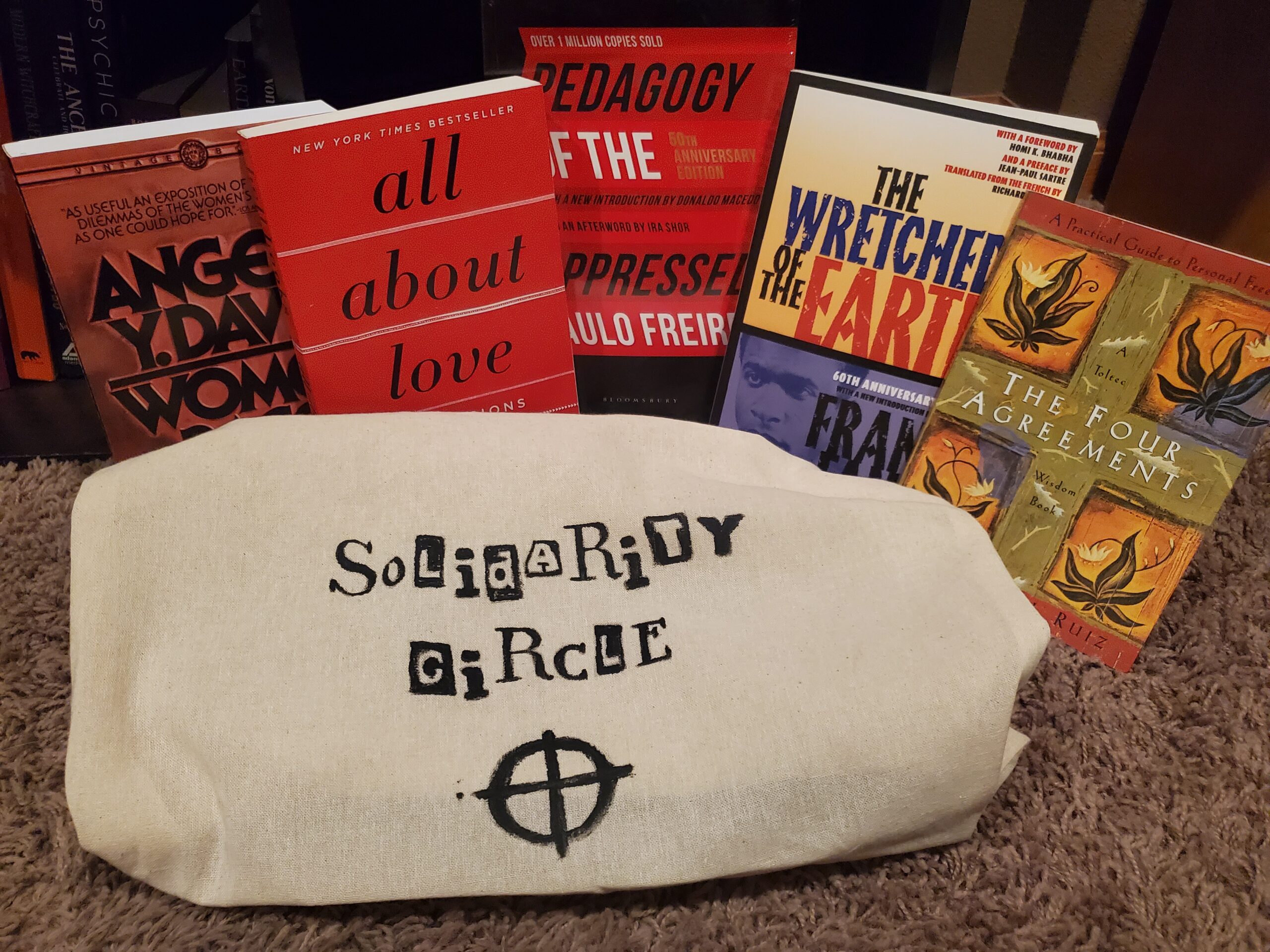
Benson says that change starts when people learn how socio-economic, political, and cultural systems operate. “We could hold teach-ins at schools, factories, etc. and talk about the things we’re learning or even more, direct action. We could have groups like these across the state dedicated to learning and theorizing. The main goal of the book club is to get people to look for education, and to want to read these books-even if they are hard to digest.”
Healing in Grounding
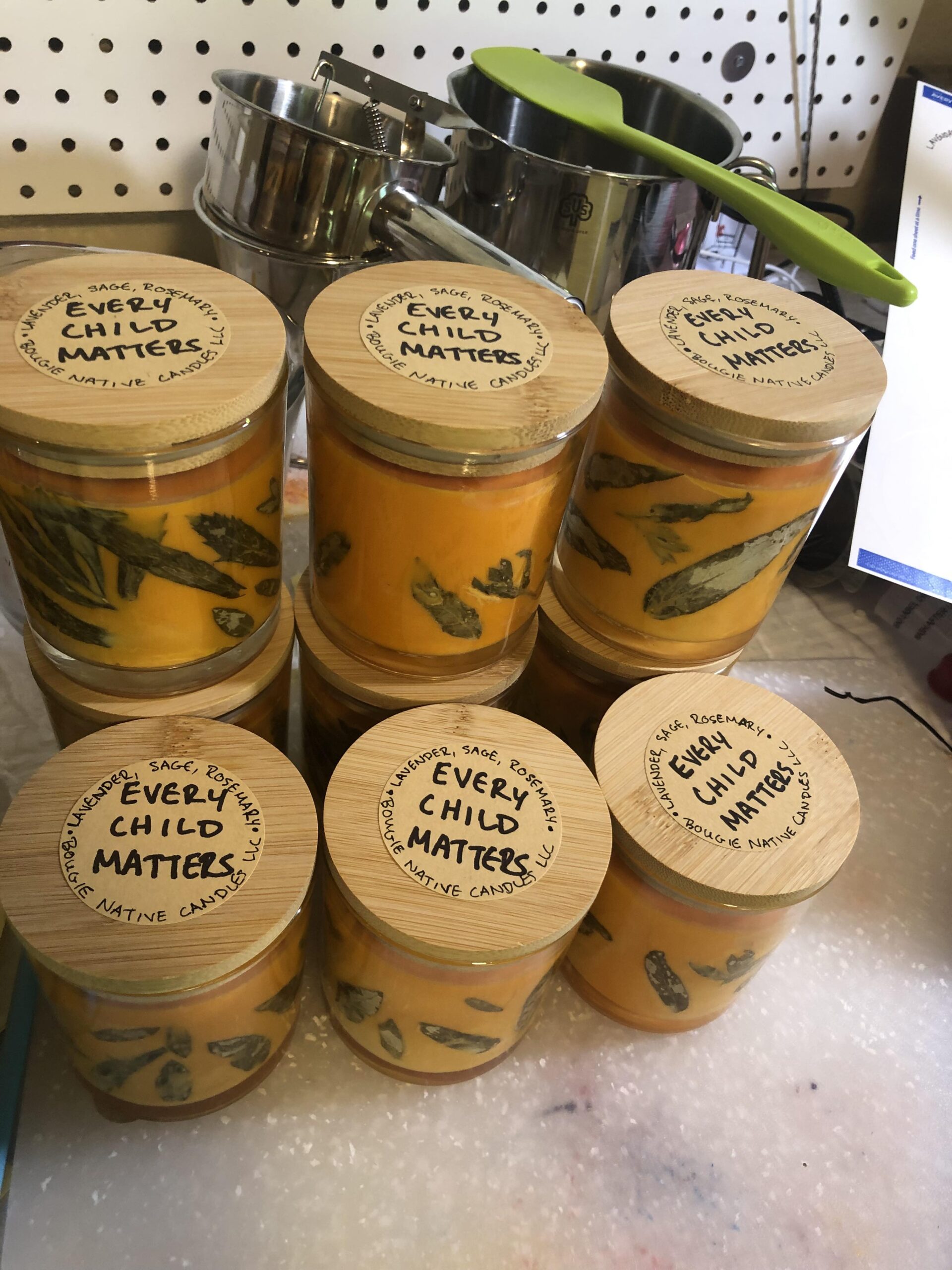
Sara ‘Cedar Not Frosted Woman’ Parker, also an MHA citizen, attended CCLI 2023 in Bismarck. She says after attending the cohort sessions, she was transformed. “I think the biggest thing I learned was how important it is to get to know other creative people in the community of different ages. I’ve spent most of my time working by myself, but talking to other people at these [Bismarck cohort] sessions and seeing what they were doing in such a warm, open environment was really amazing and transformative.”
Parker organized a solo project. She made orange candles to offer as gifts to survivors of Indian Boarding schools who were supported at a local Orange Shirt Day event in Bismarck. “My mother and grandmother went to Indian Boarding Schools. And while my grandmother had a more abusive experience than my mother did, they both carried the mark of their experiences with them. I strongly believe it (treatment at Indian Boarding Schools) needs to be acknowledged,” says Parker. “While scented candles can’t completely heal the scars from past trauma, the simple act of lighting a candle while grounding oneself in the present can help someone rebuild a sense of safety within one’s own body. If my work can help take someone out of a spiral of intrusive thoughts or help bring some momentary joy, then it’s an honor to create these candles for the survivors.”
Addressing a Need
Massa Poure is an African-American citizen from Liberia living in Bismarck. She is a mother and a wife. She strives to empower her community by connecting them with much needed resources. “I am passionate about education and learning. What attracted me to apply for this leadership institute was the opportunity to work in a community-based setting while developing and strengthening my leadership skills. I am passionate about advocating for and empowering others. This institute provided me with the tools and resources to do so.”
Poure says she was challenged by what she learned, in a good way. “Working with a diverse group of people from different communities was both challenging and rewarding. I had to be flexible and open to different perspectives. In the end, I was able to help create a project that was reflective of the work I currently do in my community.”
Poure and her group developed Project: Care that assisted the unhoused population in Bismarck. By using social media, they requested simple donations from community members such as snack food items, first aid and hygiene products, feminine care, hats, gloves and hand warmers. Then they were able to organize and distribute them at a community center that provides daily meals to the unhoused.
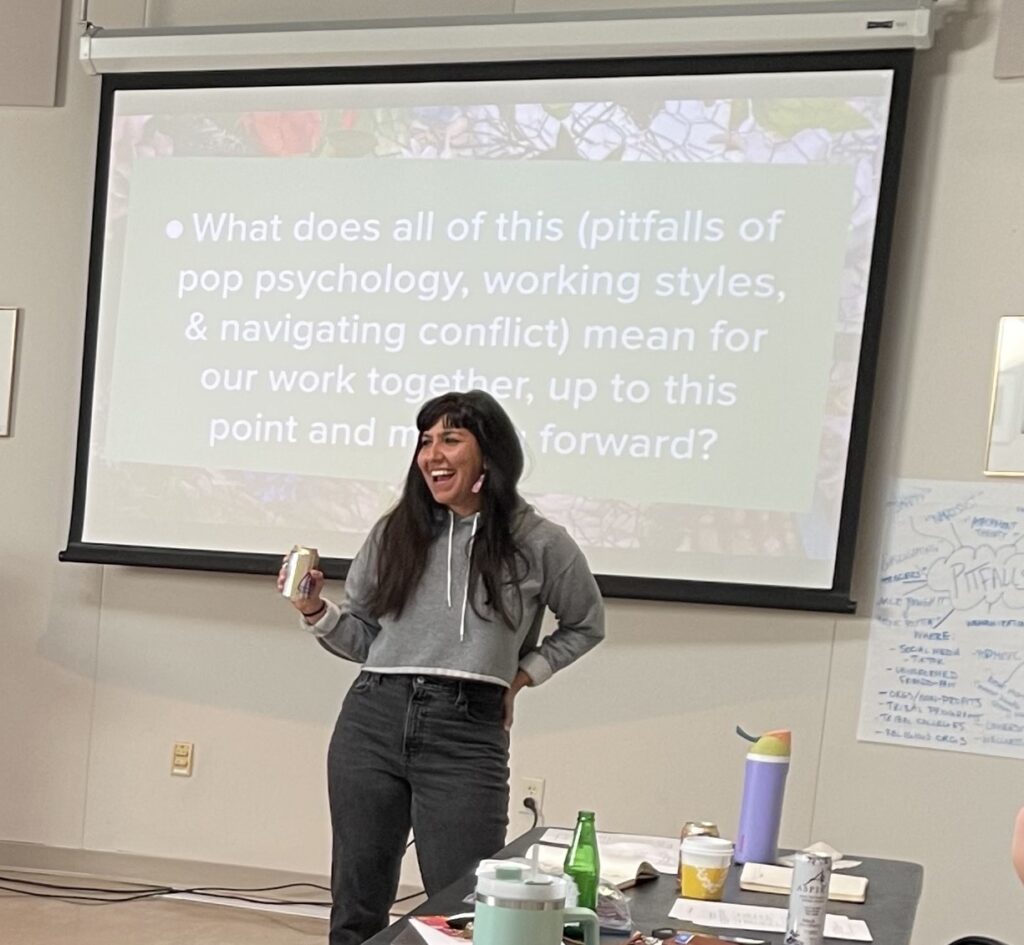
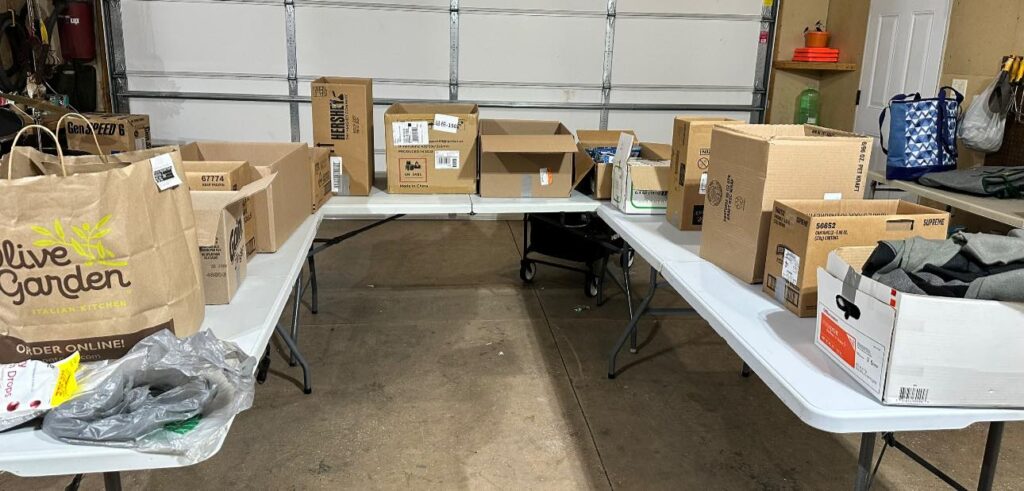
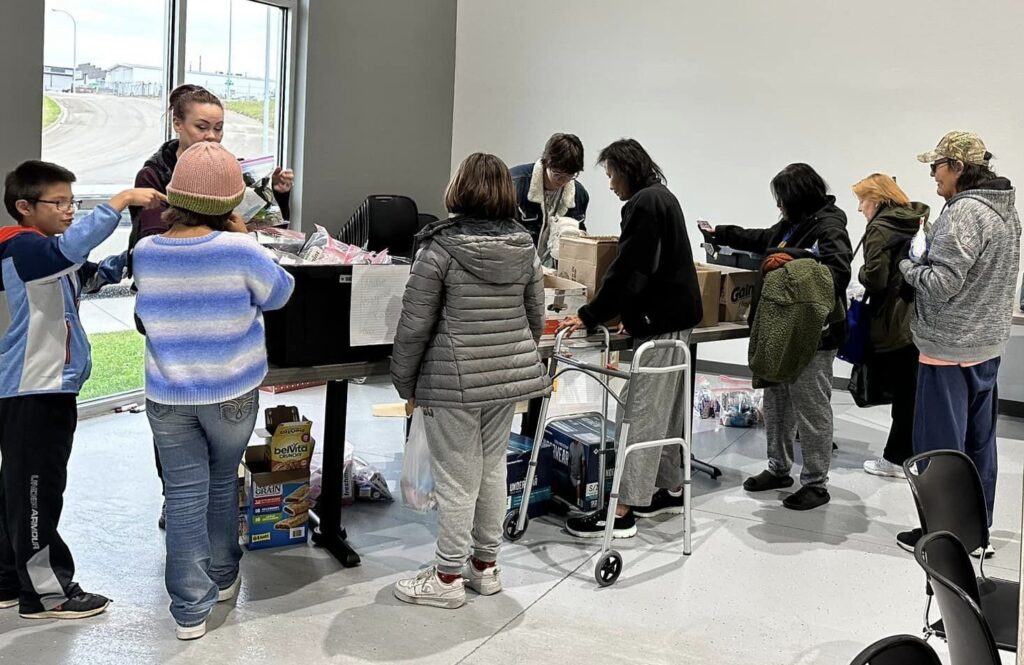
Anything is Possible
“I feel like it created a safe space for people to meet who probably wouldn’t otherwise,” says Parker. “I also think connections with other artists and bouncing ideas off other people is vital in the creative process. I feel like everyone I met at this institute was doing really cool, amazing work. It wasn’t competitive, but collaborative, which also has its place in helping people to achieve great things in their work.”
AsheghAli says anything is possible when we are striving to improve ourselves. “My teaching commitments are really around what kind of work we are doing. It can be around art, or leadership, or community organizing. My hope is that people who attend these sessions will educate and understand themselves, their roles and commitments, artistic or not.”
As of the publication of this story, the 2023 cohort was the last year of this project. Alicia Hegland-Thorpe, the author of this story, attended CCLI in 2023 (the first full cohort of members who identified as Black, Indigenous, and People of Color) and was part of Project: Care in Bismarck. The program is supported in part by Racing Magpie, Springboard for the Arts and the Bush Foundation.
